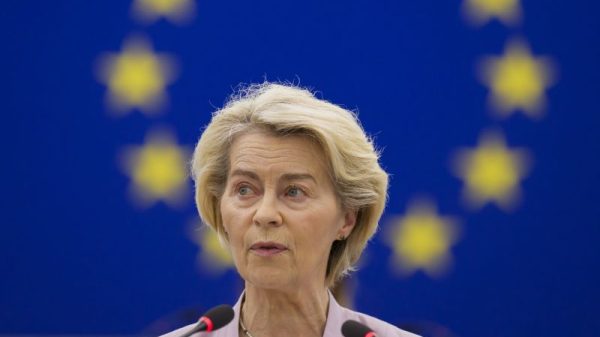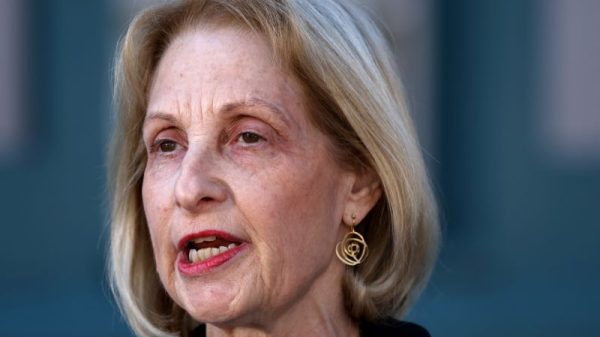For decades, Chinese workers have wrapped up their working lives at relatively young ages: 60 for men and as early as 50 for women.
But all that is about to change as the Chinese government passed new legislation on Friday laying out a plan to delay the retirement age over the course of 15 years, starting January 1, according to state news agency Xinhua.
Existing rules stated that men in urban areas could retire at 60 and receive their pensions, and women at 50 or 55, depending on their occupation. The new rules gradually push back the age to 63 for men, and to 55 and 58, respectively, for women.
The measures, which were approved by the country’s top lawmaking body following signaling from a key Communist Party body in July, also lay out plans to extend the minimum working period for employees to receive a monthly pension from 15 to 20 years, with changes starting from 2030.
They also include some flexibility in retirement age, especially for those who have already completed the minimum working period.
The change, which the government has been considering for about a decade, comes as China’s economy slows while Beijing grapples with the looming consequences of a rapidly aging population and a pension funding crisis.
The announcement sparked immediate widespread discussion – and backlash – across Chinese social media.
Some social media users appeared encouraged that the changes weren’t more drastic and included some flexibility. One comment on the X-like social media platform Weibo that garnered thousands of likes said: “As long as there are options to retire or not based on our will, I have no objections.”
Others voiced discontent over the prospect of delayed access to their pension and years of extra work, as well as concern about whether the policy would strain China’s already tough job market, where unemployment levels among young people remain stubbornly high.
“Delayed retirements just means you can’t get your pension until you hit 63, but it doesn’t mean everyone will have a job until then!” wrote one user.
Chinese state media in recent days has hailed the anticipated changes as an urgent and necessary reform for an outmoded system, highlighting how the existing policy had been in place since the 1950s when life expectancies and education levels were both lower.
“The current retirement policy framework has remained unchanged for 73 years. Especially since the reform and opening up (starting around 1978), the demographic, economic and social landscape has transformed dramatically,” demographer Yuan Xin was quoted by state media as saying earlier this week.
The existing retirement age is seriously mismatched with the current “national realities” and the new normal of future economic and social development, said Yuan, who is deputy head of the China Population Association and a demographer at Nankai University in Tianjin.
China’s existing retirement ages are lower than those in a number of major economies. The 2022 average standard retirement ages across Organization for Economic Co-operation and Development (OECD) countries stood at 63.6 years old for women and 64.4 years old for men.
Other countries have also grappled with how to manage the retirement age. Major protests erupted in France in 2023 in response to a government attempt to raise the retirement age from 62 to 64. The US has also been debating retirement reform and gradually increasing the retirement age, with Social Security incentives in place for retirees who delay taking benefits until age 70.
Demographic and economic challenges
The changes come as China’s leadership has become increasingly concerned by the country’s demographic challenges, which some economists warn could see the still-developing country fall into the trap of “getting old before it gets rich.”
China’s population has shrunk for the past two years, and it 2023 it recorded its lowest birth rate since the founding of Communist China in 1949, despite a reversal of the country’s long-standing “one-child policy” from 2016 and government-led efforts to incentivize more young couples to have children.
China’s elderly now account for more than 20% of the population, according to a report earlier this month from the Ministry of Civil Affairs, which said about 297 million were aged 60 and above by the end of last year.
Demographers cited in state media have said that, between 2030 and 2035, the elderly population will make up 30% of the total population. That is likely to increase to more than 40% of the population by the middle of this century – making China a “super-aged society.”
Those projections have seen the government ramping up efforts to expand elderly care services and boost private-sector efforts to build a “silver economy.”
It’s also put heightened focus on the ability of the country’s pension system to handle a shrinking workforce alongside its burgeoning elderly population.
A 2019 report from the Chinese Academy of Social Sciences, a top government think tank, forecast that China’s state pension fund would run dry by 2035 because of its dwindling workforce. Years of strict pandemic-related restrictions, which have shrunk the coffers of local governments, could make the pension shortfall even more pronounced.
Early last year, thousands of elderly people protested in several major cities against big cuts to their medical benefits payments, fearing that local governments were dipping into their individual accounts to cover the shortages in the state pension fund.
Even for those of working age, employment remains a steep challenge following the pandemic and a raft of government-led industry crackdowns in recent years. In July, the youth unemployment rate hit 17.1% among those aged between 16 and 24 who are not students, and was 6.5% for those 25 to 29 that month, according to state media.
Employers continue to pull back on hiring as the economy slows and people, especially in tech sectors, have widely noted age discrimination in hiring for those over 35.
The new regulations also call on the state to “support young people’s employment and entrepreneurship, strengthen the development of employment positions for older workers … and strengthen the prevention and governance of employment age discrimination.”
































